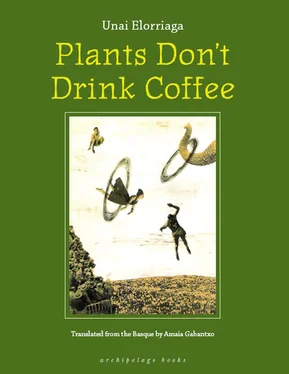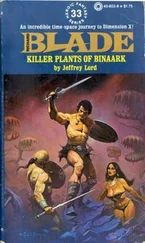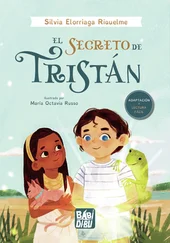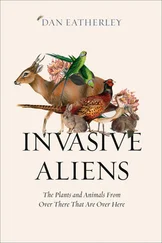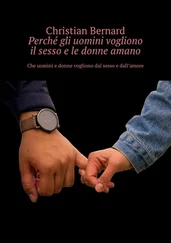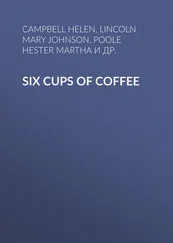“And why don’t you play rugby?” Gur, to Mateo and Ball.
“We play soccer,” Ball.
“Why?” Gur.
“Because we’ve always done it,” Ball.
“Why always?” Gur.
“Because there are lots of soccer fields in Arbidas,” Mateo.
“You have a rugby one now,” Gur.
“A provisional one,” Mateo.
“And what about a different sport? Maybe one without a field? Why don’t you do triathlon?” Gur.
“Because we know nothing about triathlon,” Ball.
“Why?” Gur.
“Because you never see it anywhere,” Ball.
“What do you mean, anywhere?” Gur.
“On TV I guess,” Ball.
“And what do you see on TV?” Gur.
“Soccer I guess,” Ball.
“And why soccer?” Gur. .
They saw a flashlight then, in the distance. And behind the flashlight, clearly, must have been the golf course guard. He was coming toward them slowly, as if he was a bit afraid. And no wonder, because there was a bunch of madmen on the golf course, on the fifteenth hole, in the middle of the night.
Gur left the line-marking machine right where it was and ran towards the ladder. Ball did the same. Mateo and Simon were on their own. And Mateo had to carry the line-marking machine, because Simon couldn’t. And they didn’t know how to stop the machine, so they drew a lustrous white line that marked their journey from the rugby field to the stone wall. It was a warm night, almost hot.
Between Mateo and Ball they managed get the line-marking machine over the stone wall. They did it calmly, because the guard didn’t follow them; he stayed behind, looking at the rugby field, following every line one by one with his flashlight. He would have to call the police; they would be able to decipher what the significance of those lines was, from up in their helicopters.
Simon stood on the stone wall and waved his arms at the guard. The helicopters would not see Simon, but even if they did, they would not believe what they were seeing: a grown-up man, on a stone wall, all smiles and salutes, waving to a guard on a golf course in the middle of the night, on June 37th.
“And what do you guys want a rugby field for?” Abel to Simon. “Patience, Abel, wait four days,” Simon to Abel. By then, the entire village knew what Gur and Simon wanted a rugby field for. But Abel didn’t. “We need ladders now, Abel, small ones, easy to carry. Forty or so; fifty would be better,” Simon to Abel.
We haven’t seen it today. The blue dragonfly. It wasn’t there today; or yesterday. Maybe it’s sick. I’m sick sometimes too, and I don’t do the same things when I’m sick as I do before I’m sick. Before I’m sick I go to school; when I’m sick I don’t. When I’m sick I look out of the window a lot. Because I can see a school from my window. Not ours: another one. One with girls only. And nuns. Nuns almost never get hot.
Dad is sick now, with a big pain. I often have a sore throat, but that’s nothing. Because children’s pains are nothing. A doctor who comes to our house likes to say that: Children’s pains are nothing. But illnesses that aren’t children’s cause a lot of pain, and make you stay in bed a lot. Dad is sick now and sometimes he says “Take the child away from here,” and that’s odd, because normally Dad is happy when we go to visit him in his room at the hospital, but he said that one day: “Take the child away from here,” and that’s odd. Mom explained it’s because of the pain, because Dad has very big pains. Dad has very big pains, but I don’t know where.
Maybe the dragonfly is also sick. That’s why it didn’t come yesterday or today. Maybe it has a fever, or the flu, or colic. Colic is a pain in your belly. I had it twice. But the dragonfly’s belly is very very narrow, so I don’t know if it can have a pain in such a narrow belly. Because dragonflies are like needles, only that needles don’t have bellies because they are made of metal. But you can’t catch dragonflies with lodestones. They are different like that, dragonflies and needles.
That’s why I am at Aunt Martina’s now, because Dad is sick. With a big pain. But today we went to Aunt Rosa’s. Aunt Rosa and Aunt Martina were sewing and I was sitting down. Afterwards Piedad arrived. Piedad is a woman who’s very very old and full of mystery. One of Piedad’s mysteries is that she met Samuel Mud, an architect. But Piedad’s biggest mystery is why didn’t she marry Samuel Mud. That’s what Aunt Rosa and Aunt Martina want to know. And they ask Piedad questions, but they never ask “Why didn’t you marry Samuel Mud?” They ask other things, but that’s what they really want to know, why didn’t Samuel and Piedad marry. But they don’t dare ask. He was the best architect in the world, Samuel Mud. And the best one in the universe too.
Today PIEDAD is blue
In the sewing room, next to the window, where the light is best, Rosa and Martina sewing. And talking too. The truth is, they are more interested in talking than in sewing.
Tomas sitting on the floor, listening to what his aunts are saying but pretending he isn’t. Sometimes he lies flat on the floor, and it’s a habit of his to bend his knees and raise his legs towards the ceiling as he does so.
Piedad next to the cutting table. Blue flowers on her dress; and some white ones too, but mostly blue. She has a book on her lap, under her hands, of letters the architect Samuel Mud wrote to the architect Sorin Firs. And of letters Sorin Firs wrote to Samuel Mud too, though there are fewer of these. Piedad still hasn’t had a chance to read it. The book is brand new, there isn’t a mark on it.
Piedad thinks she, Piedad, might be mentioned in one of Samuel Mud’s letters, because she spent so much time with him. Piedad has some letters Samuel Mud sent her from England, but they can’t really be shown to anybody.
Piedad speaks like a fountain, or a shower:
“That little lady died. Did you hear, Martina? You know who, that lady from the square. .”
“Justina,” Rosa.
“Justina, yes. . I think she was two years younger than my cousin Eustaquio. He’s ninety-three.”
“She was still going to the shop to buy bread on her own until very recently,” Martina.
“It was an uncle of hers who sent me to England,” Piedad. “Her uncle’s name was Martin. Martin Alango. He was a sea captain. He found me a job in England. He spoke with somebody at the hospital. He had a friend there. It was because of him that I spent all those years in England.”
“And Eustaquio? How is he doing?” Rosa.
“He needs everything, the poor man. He suffers every ill in the world. He takes two hundred pills in the morning and two hundred more in the evening. He says it himself: My nails are the only things that work. And out of the twenty, only thirteen do. That’s what poor Eustaquio is now, a walking ailment.”
“And to think of what Eustaquio was like,” Rosa.
“Eustaquio?” Piedad. “Eustaquio was a bison. Eustaquio could move train carriages with one hand. And now, what? Now he’s a wreck.”
“That other woman too, they say she’s very sick. You know who, she lives there, in Benta. I think her name is Fermina. She’s very sick too.” Martina.
“Fermina, yes. She lives there, in Benta. There’s something wrong with her heart,” Piedad. “And that’s normal. Isn’t it normal for the heart to start to drag a bit? It’d be odd if it didn’t.”
“That’s true,” Rosa.
“And that Fermina is young, too,” Piedad. “She’s not seventy-four yet.”
“That woman lived in Sarri all her life,” Rosa. “She came here later on. To live with one of her sons.”
“She came here from Sarri?” Piedad. “That’s odd.”
“Why ‘odd’?” Martina.
Читать дальше
